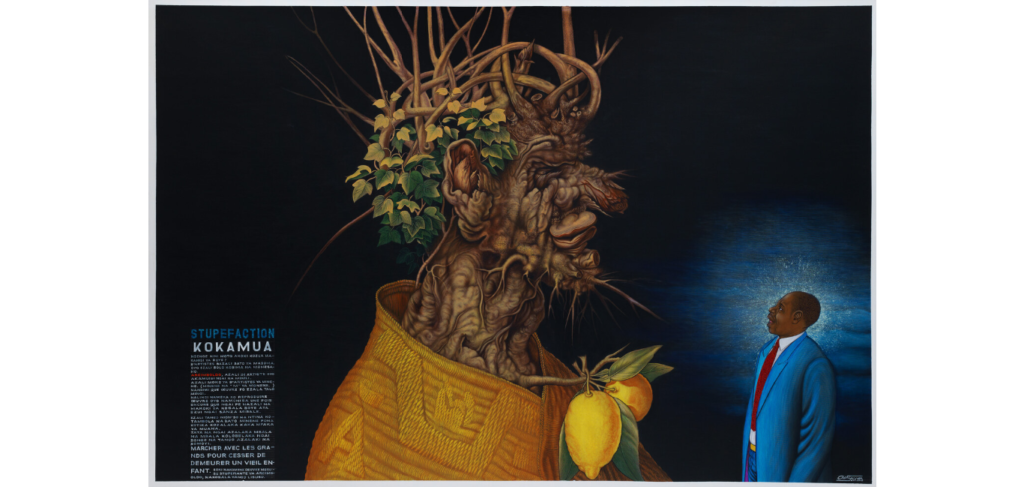Street art, the intentional alteration of infrastructure for artwork, has evolved into a potent form of creative expression. It challenges established norms, shapes artistic discourse, and carries a rich history. Recent developments in modern-day street art, coupled with Africa’s unique contributions, have reshaped the artistic landscape.
In examining modern instances of vandalism, it is important to explore the concept in a broader context. Street art is for artists to provoke, challenge, and engage with societal issues. Africa, with its diverse cultures and complex histories, has provided fertile ground for artistic rebellion. From vibrant street art scenes in cities like Lagos, Johannesburg, and Nairobi to thought-provoking interventions on colonial monuments, African artists are reclaiming public spaces and reshaping narratives.

Let’s take a look at Emeka Ogboh. Emeka Ogboh is through his audio installations, Ogboh challenges the dominant cultural narratives by engaging with soundscapes and creating disruptions in public spaces. Ogboh creates a sonic representation and time capsule of the ever-changing city. His art captures the constant flux of new structures emerging and old ones being dismantled, reflecting Lagos as a work in progress. Transitioning between moments in history, Ogboh’s art portrays the vibrancy and temporality of modern-day vandalism. His work raises questions about identity, globalization, and the impact of colonialism.
Furthermore, African artists have leveraged graffiti as a means to address social and political issues specific to the continent. The article highlights the work of Congolese artist Chéri Samba, who uses painting as a form of protest and commentary on corruption, poverty, and political oppression. Samba’s art acts as a powerful visual critique of the state of affairs in Africa.

In the 1980s, Samba actively portrayed himself in his artwork, becoming the messenger of his ideas and personal narrative. He aimed to provoke thought and appeal to people’s consciences through his art, emphasizing the role of artists in stimulating critical thinking.
The influence of modern street art movements, such as graffiti, cannot be overlooked in the context of African graffiti. Artists like South African-born Falko One have transformed urban landscapes, infusing them with colorful murals that challenge societal norms and celebrate African culture. Their art serves as a visual language of resistance, inspiring communities and sparking conversations. African artists also engage in acts of graffiti as a means of reclaiming cultural heritage. By painting on colonial statues, they confront the painful legacies of oppression and assert their agency in reshaping narratives. The destruction of these symbols becomes an act of protest and a call for a more inclusive and decolonized future.

ALL WE WANT FOR XMAS IS ELECTRICITY. Graffiti on iron sheet homes ( mabati). Image courtesy of Falko One Instagram.
In this ever-evolving landscape of modern art graffiti, Africa’s influence is profound. The continent’s artistic expressions challenge preconceived notions, amplify marginalized voices, and inspire social change. African artists contribute to a global dialogue on creative defiance, fostering critical reflection and encouraging a reimagining of established norms.
As art graffiti continues to evolve, Africa’s unique contributions to making it transformative, serve as a testament to the power of artistic expression in reshaping societies. By engaging with social issues, reclaiming cultural heritage, and challenging dominant narratives, African artists play a vital role in pushing the boundaries of creative defiance.
Contemporary art graffiti is a dynamic and multifaceted form of creative expression. Africa, with its rich cultural heritage, complex histories, and vibrant artistic scenes, has made significant contributions to this evolving landscape. African artists provoke thought, challenge norms, and inspire change through their acts of artistic rebellion. By embracing vandalism as a tool for social commentary and cultural exploration, Africa’s influence on modern art graffiti reshapes the global narrative, driving conversations, and fostering a more inclusive and decolonized future.


